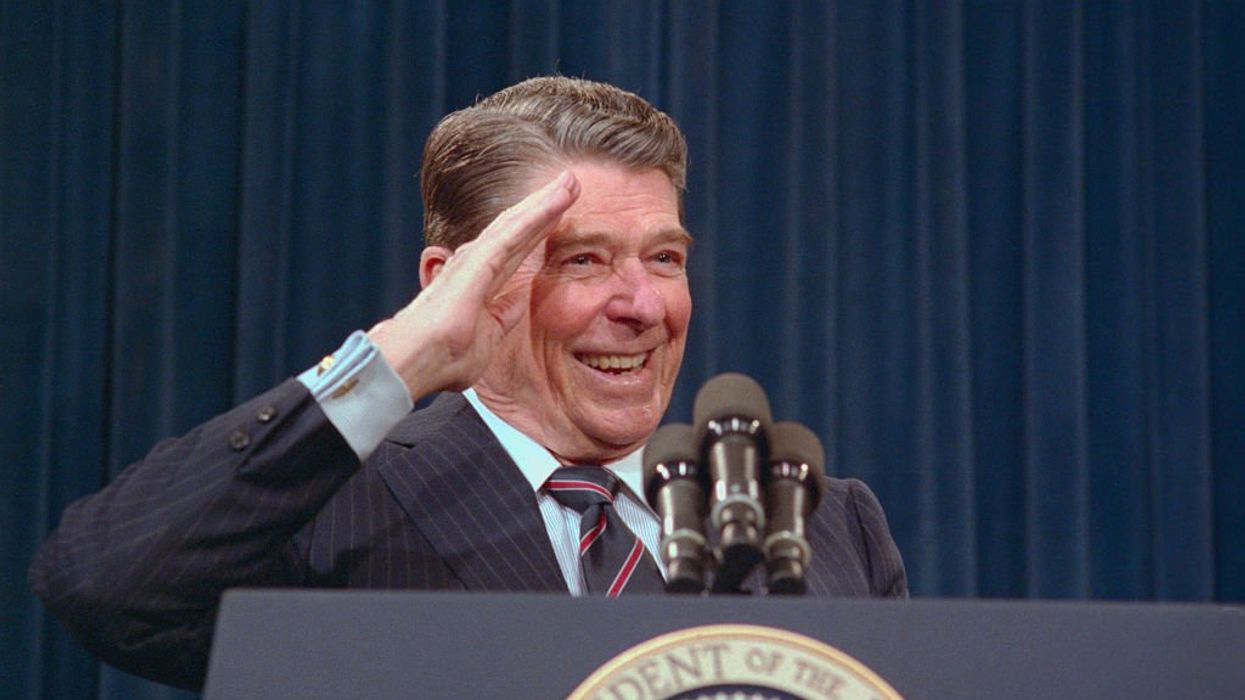Labor Secretary Tom Perez asserted Monday that allowing more foreign workers into the United States would have the effect of increasing U.S. wages, contrary to the findings of several studies, and the law of supply and demand, which say more workers would mean reduced wages.
Perez delivered a speech in Washington in which he cited a Congressional Budget Office study that said the Senate's immigration reform bill would increase U.S. economic activity by 5.4 percentage points over the next two years.
 Department of Labor Secretary Tom Perez said Monday that adding more foreign workers to the U.S. labor pool would somehow boost wages. Andrew Burton/Getty Images
Department of Labor Secretary Tom Perez said Monday that adding more foreign workers to the U.S. labor pool would somehow boost wages. Andrew Burton/Getty Images
"Adding jobs, putting upward pressure on wages, helping to stabilize the Social Security trust fund," he said.
But the CBO report he's referring to is mixed at best on the issue of wages. The 2013 report said under the Senate's bill, wages would fall by 0.1 percent by 2023, and said the wages of higher- and lower-skilled workers would fall more during that time period.
"As the labor supply initially increased under the legislation, less capital would be available for each worker to produce output, and thus workers’ output, on average, would be lower for a time," it said.
CBO did say wages would rise again eventually, but only after 2023, and it said this would only happen after the business capital available for each worker is somehow able to increase to accommodate the new workers. But CBO did not explain how that might happen, and said only that it would happen "over time."
Perez's comments go against the CBO's finding, but also the findings of the Center for Immigration Studies, a group opposed to the Obama administration's plan to create a legal status for millions of illegal immigrants. That group released a report in June showing that all new net jobs created in the U.S. since 2000 have gone to immigrants.
It also goes against a study done by Dr. George Borjas at Harvard University, who found that immigration has already cost American workers $402 billion in lost wages annually from 1960 to 2012.
Sen. Jeff Sessions (R-Ala.) has also argued that the administration's plan would be crushing to millions of U.S. workers who are either not working enough, or who still can't find a job. "In spite of this, the president continues to champion legislation that would place further substantial downward pressure on wages," Sessions said in June.
Perez used his speech to say the Obama administration has made significant progress in helping the economy recover, but said more needs to be done, including hiking the minimum wage. While the Obama administration has presided over an historic drop in the labor force participation rate, Perez said that drop is due to the failure of government to provide paid family leave to female employees.
"The labor force participation rate of women ages 25 to 54 in the year 2000 in the U.S. and Canada was virtually identical," he said. "Today, Canada is ahead of us by roughly 8 percent points, in large measure because they have generous paid leave laws, and they provide access to affordable child care."
"If we had simply kept pace with Canada over these years, we would have 5.5 million more women in the workforce," he said.
Perez is thought to be a possible candidate to replace Eric Holder as the next Attorney General of the United States. He was asked several questions about that possibility, but generally said he was focused on his current job. He did, however, say he agrees with Holder that voter ID fraud is not a problem.
While the fear of voter ID fraud has led some states to enact tougher voter ID laws, Perez said voter ID fraud is a "phantom problem."

 Department of Labor Secretary Tom Perez said Monday that adding more foreign workers to the U.S. labor pool would somehow boost wages. Andrew Burton/Getty Images
Department of Labor Secretary Tom Perez said Monday that adding more foreign workers to the U.S. labor pool would somehow boost wages. Andrew Burton/Getty Images


